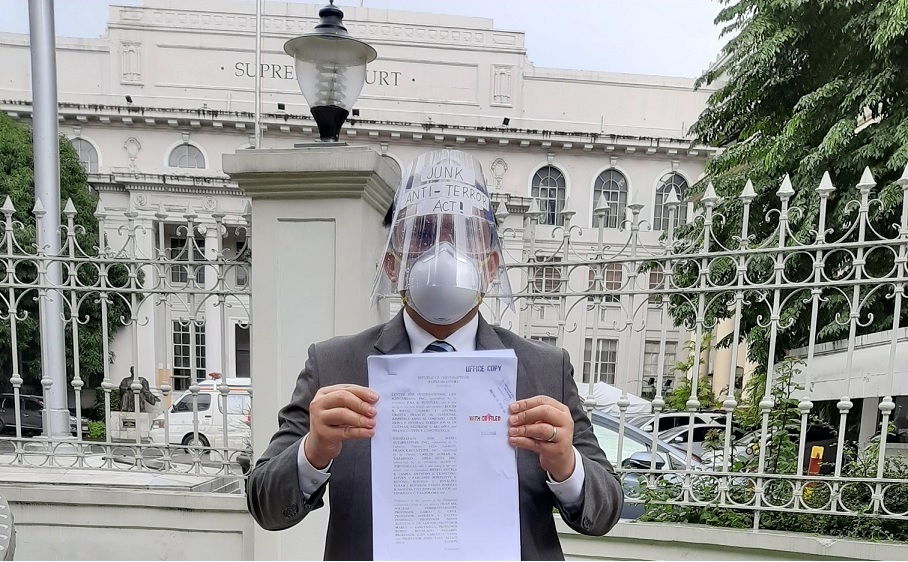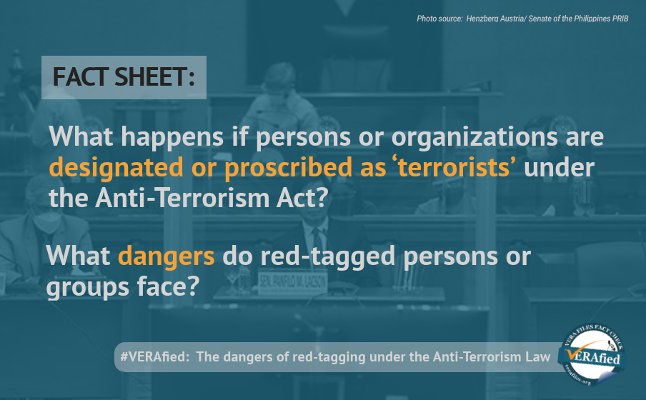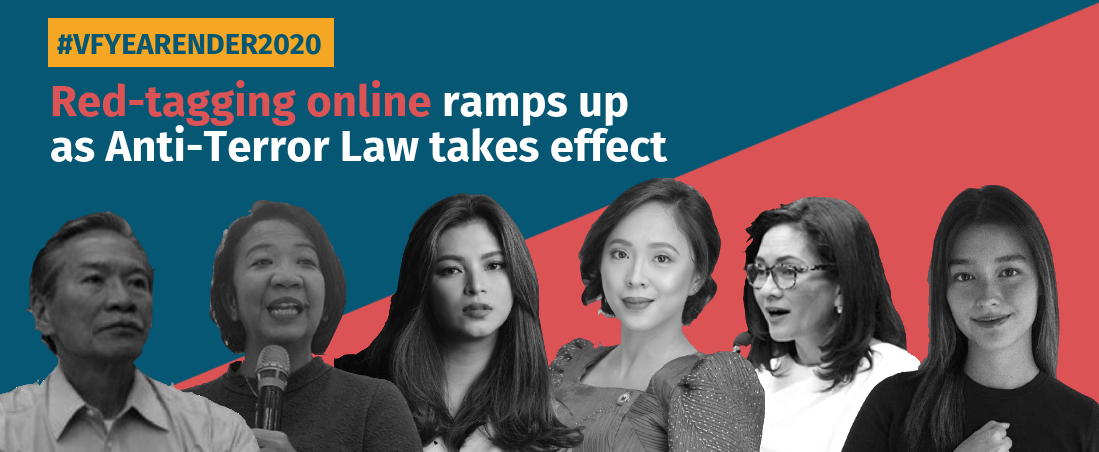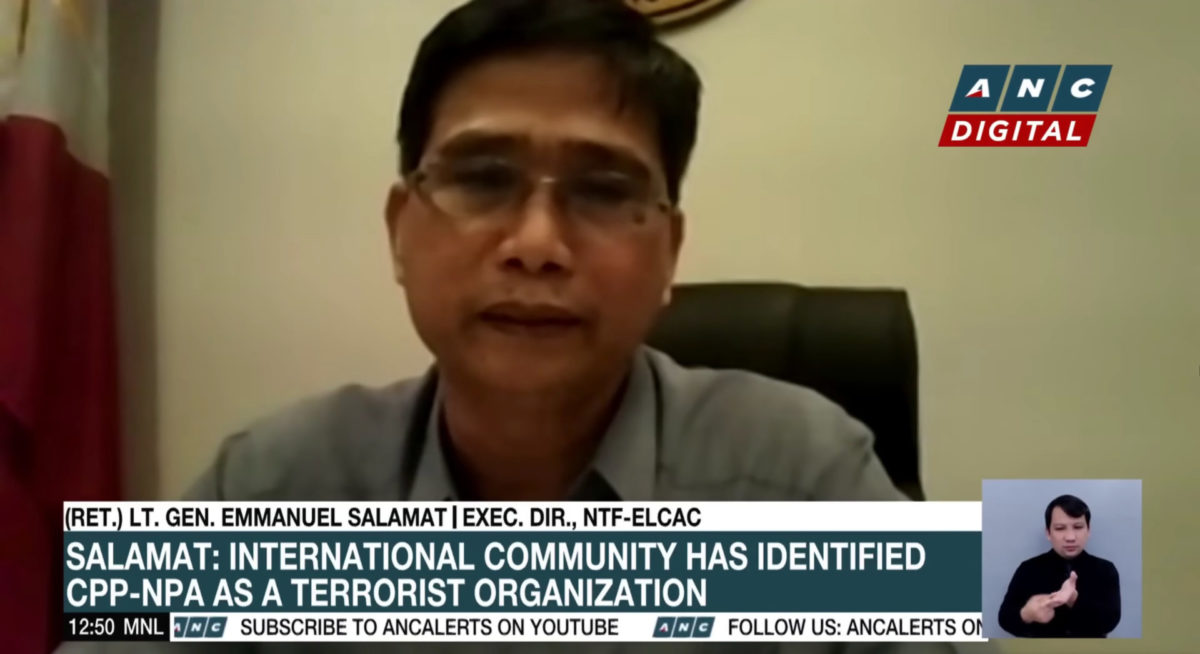A broad coalition of journalists, lawyers, human rights defenders, digital activists, and law professors is asking the Supreme Court to declare as unconstitutional the recently enacted anti-terrorism law for various reasons, including certain violations of the Bill of Rights.
Led by the Center for International Law (CenterLaw), Inc., the group will file on Monday (Aug. 10) before the High Tribunal a “petition for certiorari and prohibition with prayer for the issuance of a temporary restraining order and/or writ of preliminary prohibition injunction.”
More than 25 other petitions have so far been filed by various individuals and organizations, questioning the legality of Republic Act No. 11479, or the Anti-Terrorism Act of 2020, signed by President Rodrigo Duterte on July 3, amid rising cases of the coronavirus disease (COVID-19).
The coalition said the petition is for certiorari and prohibition because the enactment of the anti-terrorism law was “imbued with grave abuse of discretion amounting to lack or excess of jurisdiction,” as its salient features are contradictory to the 1987 Constitution.
In particular, it said that eight out of nine penal provisions of the anti-terrorism law are “repugnant to the Constitution for transgressing fundamental rights, including the right to freedom of speech, the right of the people to peaceably assemble and petition the government for redress of grievances, and the right to freedom of association.”
Given these concerns, the coalition wants the court to issue a TRO to prohibit law enforcement agencies such as the Philippine National Police (PNP), Armed Forces of the Philippines (AFP) and the National Bureau of Investigations (NBI) from implementing the Anti-Terrorism Act, which took effect on July 21, or 15 days after its July 6 publication in the Official Gazette.
The 124-page petition said the Anti-Terrorism Act “gives unbounded power and discretion to the police and the military in ascertaining and declaring what constitute acts of terrorism, even assigning to them the authority to arrest mere suspects who may be detained for 24 days without bringing charges against them in court.”
Specifying the military’s “lack of training” and unfit for police duties, they “can only add to the misinterpretation, misapplication and grave abuse in the implementation of the law,” the petition said.
They invoked that these are obvious breaches of people’s freedom to due process, speech, association, the person’s right to bail and the guarantee on the availability of the writ of habeas corpus, as enshrined in the Constitution.
Furthermore, the petition cited that the provisions of the ATL on surveillance, permitting authorities to invade one’s privacy, may it be an innocent person, a suspect, or even those convicted and charged in court; violates “the right to privacy of persons and their communications, and the rights of the accused.”
The petition also takes to task the Senate and the House of Representatives for possible negligence and abuse of power, saying they are “grossly remiss, if not abusive of their powers and duties” in writing and approving the provisions violating the Constitution.
“If these senators and representatives can err gravely on the crafting and interpretation of the Act, what more the ordinary policemen and the ill-trained military personnel who are tasked with its implementation?” CenterLaw’s Gilbert T. Andres said.
It said the haphazard enactment of the law “reveals the respondents’ misplaced priorities in the midst of a deadly Covid-19 pandemic and lays bare the government’s design to weaponize the law to suppress fundamental freedoms.”
Apart from CenterLaw, the other petitioners in the coalition are the Foundation for Media Alternatives (FMA), Inc., Democracy.net.ph, Inc, VERA Files, Inc., and individuals such as journalist Ellen Tordesillas, lawyer Romel Regalado Bagares and law professors from the Lyceum of the Philippines.
CenterLaw, led by its president Joel R. Butuyan, is a lawyers’ advocacy group actively litigating for respect and adherence to international human rights law and to constitutional rights, especially the right to freedom of speech, of expression, of the press, and to peaceably assemble. It also actively advocates for internet freedom, digital rights, and respect for the rule of law.
FMA assists citizens and communities, especially civil society organizations and other disadvantaged sectors, in the strategic and appropriate use of information and communication technologies for democratization and popular empowerment.
Democracy.net.ph is an information and communications technology rights, governance, development, and security advocacy group and is actively involved in ICT policy development in the Philippine executive and legislative branches of government.
VERA Files is a nonstock, nonprofit independent media organization engaged in in-depth reporting and fact checking, among others.
The respondents, apart from both houses of the Congress, are the Anti-Terrorism Council (ATC), Executive Secretary Salvador Medialdea, Anti-Money Laundering Council (AMLC) Executive Director Mel Georgie B. Racela, Justice Secretary Menardo I. Guevarra, Budget Secretary Wendel E. Avisado, Police General Archie Francisco F. Gamboa, AFP Chief Lt. Gen. Gilbert Capay, NBI Director Eric Bito-on Distor and their respective agencies.
To date, it will be the 27th petition questioning the anti-terrorism law before the Supreme Court. The most recent one was filed on Aug. 7 by Indigenous Peoples (IPs) headed by peace and human rights advocate Samira Gutoc.




